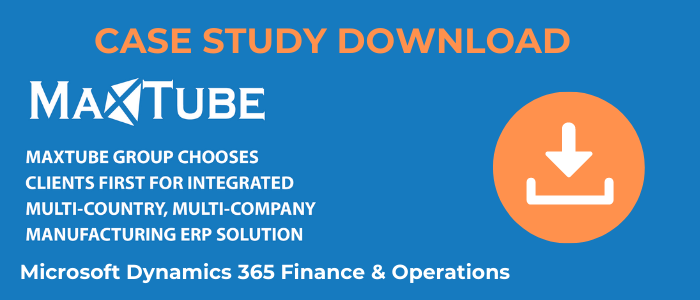Microsoft’s cloud platform, known as Azure, allows users to build, deploy, and manage different applications across global networks. An interesting aspect we are going to analyze in this post is how Microsoft Dynamics AX 7 will use SQL Azure for cloud deployments.
SQL Azure Service Model for Dynamics AX 7
According to the general manager of Dynamics AX, Dan Brown, Dynamics AX 7 will make available a single-tenant deployment model. Unlike the multi-tenant model, which promotes file and application sharing using the same software product, in the single-tenant model, each user gets a separate instance of software, which will run on an isolated piece of infrastructure. The single-tenant model uses Azure’s infrastructure-as-a-service (IaaS), which offers customers total control over virtual machines and network configurations.
On the other side, Microsoft Dynamics AX 7 deployed on SQL Azure will provide two major services: platform-as-a-service (PaaS) and database-as-a-service (DBaaS). Although the PaaS model doesn’t allow you to control or manage the software and network servers, you’ll be able to customize the system and create new applications using the tools included in AX 7. In the DBaaS model, you can develop and manage applications without assuming the responsibility for database administration functions. Since Microsoft will manage the system and servers, you don’t need to hire IT personnel to maintain the database.
Dynamics AX 7 will also use Microsoft’s model-driven layered architecture (MDLA), which facilitates the development of individual application objects for each company. This means that you can develop your own tables, code units, reports, etc. according to your organization’s needs.
Why SQL Azure?
Delivering a powerful combination of IaaS, PaaS, and DBaaS, SQL Azure lets users build, deploy, and manage applications any way they want. In addition, it is:
- Flexible – Encouraging innovation, SQL Azure supports various frameworks, tools, and systems, including the upcoming Microsoft Dynamics AX 7. SQL Azure also guarantees above 99 percent availability along with round-the-clock service monitoring and tech support.
- Economical – With SQL Azure, you can offer a wide variety of services to customers, build new applications that work on any device, and benefit from a package that can be scaled up and down to match your demands. Simply put, you only pay for what you use.
- Hybrid ready – Delivering an intelligent enterprise-proven cloud solution, SQL Azure allows you to combine the functionality of your data center with private and public clouds. With this platform, you can expand your IT options and add new features so that your organization becomes more efficient.
SQL Azure also enables users to build new infrastructure models with the same tools and virtual machines they use on-premise. For instance, you could use the features and tools included in Dynamics AX to develop a variety of applications for Windows, iOS, and Android devices and leverage the full power of SQL service in the cloud to get a single sign-on across popular SaaS applications, such as Office 365, SalesForce, Google Apps, DocuSign, and Dropbox. Furthermore, SQL Azure makes possible business data monitoring and user account management.
Built on SQL Azure, Dynamics AX 7 will require users to write less code, accelerating the application development process. Additionally, the system will simplify the generation of industry-specific solution models, which will enable the delivery of customer-specific customizations more quickly. As well, it will improve product lifecycle management, positively impacting the application ownership cost, from design, implementation and configuration to operation and upgrade.
Driven by customers’ needs, experiences, and future aspirations, the unique combination of Microsoft Dynamics AX 7 and SQL Azure offers notable cloud benefits, while minimizing the IT burden across your organization. The most important advantages include lower implementation and maintenance costs, new scenarios for superior mobile experiences relating to capabilities and services, advanced migration tools and paths that will facilitate a smoother transition to the cloud, and continuous access to the latest best practices and future system upgrades.
 Microsoft Dynamics AX: SQL Azure For Cloud Deployments">
Microsoft Dynamics AX: SQL Azure For Cloud Deployments">
